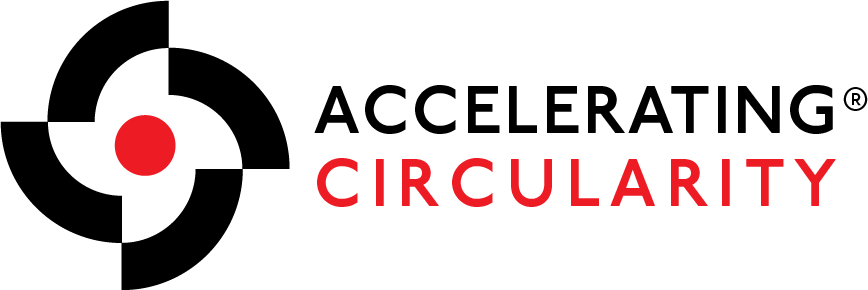July Update
Accelerating Circularity is in an exciting phase as we begin to shift our research focus from information gathering to analysis and mapping. Although companies remain focused on important issues around the COVID-19 crisis, we have gotten good engagement on the project from the industry. Please read on to learn what we've been up to and how you can contribute to the project.
RESEARCH UPDATES
Since our launch in February, ACP has identified more than 550 stakeholder targets through desk research and by leveraging our extensive network of industry insiders. Direct outreach to that cohort has yielded 145 survey responses and more than 90 interviews across all sectors of the industry to-date. Because Covid-19 has impacted companies' capacity to participate, we will leave our surveys open to new respondents even as we begin to aggregate and analyze the results of this research.
Feedstocks and Recyclers
We know for certain that there is plenty of post-consumer textile waste available in our target region as potential feedstocks in a circular supply chain (see below):
Further research into post-consumer waste provides a snapshot of collection channels, sorting channels, and pre-processing capacity:
Collection channels
Charities: e.g. Goodwill, Salvation Army
For profit: e.g. Savers
Bin Operators both charity and for profit: e.g. Planet Aid, USAgain
Municipal solid waste collectors
Sorting channels
<10 within our designated region
Hubs outside our region include El Paso & Houston, TX and in Toronto & Ontario, Canada
Preprocessing
Wiper suppliers: 17 wiper suppliers with >$2M in revenue operate within the study region
Reclaimed Fiber Companies/Shoddy Manufacturers: 7 facilities with the capacity to shred either post-industrial, post-consumer, or both exist within the study region
These data, along with findings from our post-industrial waste research, will feed into our recycling feedstock stakeholder matrix.
We have similarly developed a snapshot of the US recycler landscape (below):
Textile Manufacturing
Large fiber, yarn, and fabric producers we queried include Unifi, Premiere, Parkdale, Mt. Vernon, Precision, and others, representing well over $6BN of the market. Our research indicates that there is plenty of capacity for fiber, yarn, and fabric production in our target region on the East Coast of the United States. Finished good capacity is relatively low, however, as fiber and fabric get shpped to other regions for cut and sew. Despite this gap, our survey of brands and retailers showed that 73% of respondents are currently sourcing product in the Western Hemisphere, and most are also sourcing at least some fabric there. Current sourcing patterns overlapped substantially with specific product categories respondents called out as targets for circular initiatives. We feel this indicates strong potential for viable circular product sourcing in the target geography.
Stay tuned as we publish our full findings in the coming months.
ORGANIZATION UPDATES
ACP's Team is Growing
We were pleased to expand our capacity and reach by adding team members across categories last quarter:
Jim Ciccone, Unifi, joined the Board as Treasurer
Sarah Coulter now serves as Project Coordinator
New Collaborating Organizations include:
Stakeholder Engagement
Our inaugural update, published in May, reached more than 600 stakeholders. We also published Options for Excess Inventory in the Time of COVID and launched our blog with Karla's piece, Tinder for Textiles. That piece contributed to the substantial audience growth we achieved on Twitter (174% over Q1) and LinkedIn (235%), where it was our top post.
AGENDA
This fall, ACP will appear at several conferences and expos while continuing our popular webinar series on various facets of textile recycling. You can find recordings of past webinars online, including the recent Post-Industrial Textile Recycling in the Circular Economy, Recycling Post-consumer textiles: Scaling, Demand, Collection and Logistics, Challenges, Collaboration and Circularity, and Sustainability Essentials: The Textile Circularity Roadmap. Follow us on LinkedIn or Twitter for event postings and updates, and as always, if you have ideas or suggestions for an event, please reach out -- we’d be glad to engage.
October 22, 2020 Future of Consumption - Who, How, Where? Karla leads a session hosted by the Textile Fashion Center in Borås, Sweden.
October 27-28, 2020 Karla speaks at the Plastic Free World Conference and Expo in Atlanta, GA. Early bird registration is now open.
November 2 - 6, 2020 Save the date for the Textile Exchange Sustainability Conference and an expert panel on recycling techologies with ACP Working Group members Tricia Carey (Lenzing), Maurizio Crippa (gr3n), Chad Bolick (Unifi), and Steven Usdan (Giotex).



